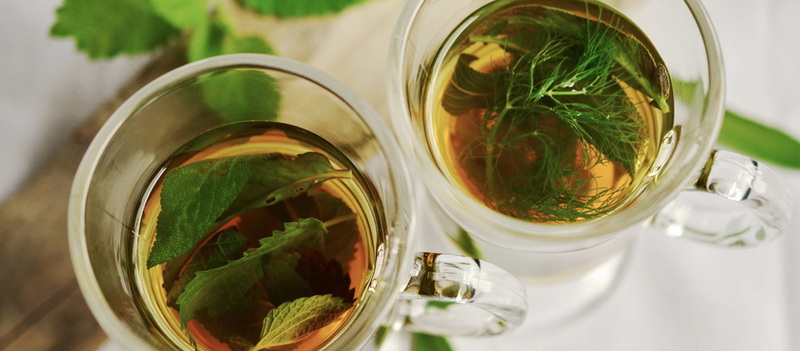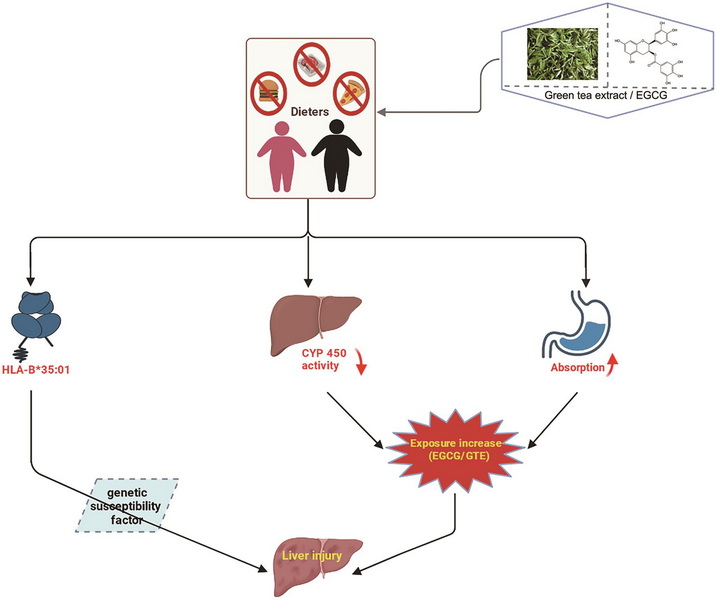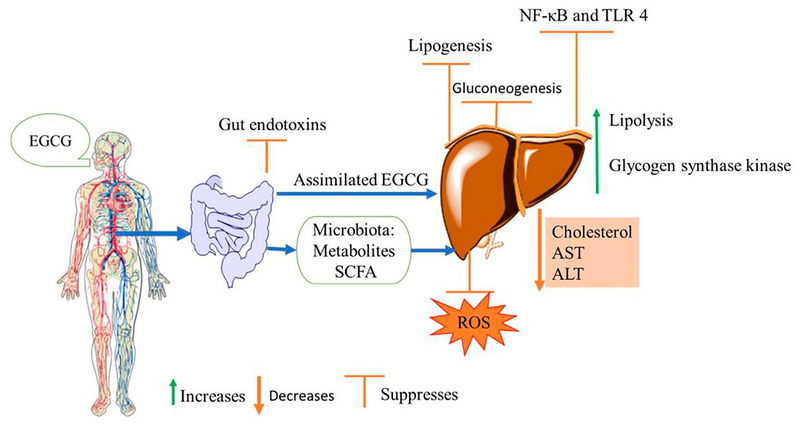Content Menu
● Understanding Green Tea Extract
>> Types of Green Tea Extracts
● The Risk of Liver Damage
>> Reports and Studies
>> Mechanisms of Injury
>> Case Studies
● Safe Consumption Guidelines
>> Recommendations for Use
>> Lifestyle Factors
● The Role of Individual Variability
>> Genetic Factors
>> Pre-existing Conditions
● Conclusion
● FAQ
>> 1. What amount of green tea extract is considered safe?
>> 2. Can drinking regular green tea cause liver damage?
>> 3. What are the symptoms of liver damage from green tea extract?
>> 4. Are there specific populations at higher risk for liver damage from green tea extract?
>> 5. Should I stop taking green tea extract if I experience side effects?
● Citations:
Green tea has long been celebrated for its numerous health benefits, including antioxidant properties and potential protective effects against various diseases. However, recent studies have raised concerns regarding the safety of concentrated green tea extracts, particularly their association with liver damage. This article aims to explore the relationship between green tea extract consumption and liver toxicity, providing a comprehensive overview of the current understanding of this issue.

Understanding Green Tea Extract
Green tea extract (GTE) is derived from the leaves of the Camellia sinensis plant and is rich in catechins, particularly epigallocatechin gallate (EGCG). The concentration of EGCG in supplements can vary significantly, with some products containing doses as high as 1000 mg per serving. In contrast, a typical cup of brewed green tea contains approximately 90 to 300 mg of EGCG. The concentrated nature of extracts often leads to higher intake levels than those achieved through regular tea consumption, which may contribute to the risk of adverse effects.
Types of Green Tea Extracts
There are several forms of green tea extracts available on the market, including:
- Liquid extracts: These are concentrated forms that can be mixed with water or other beverages.
- Powdered extracts: Often found in capsules or as loose powder, these can be added to smoothies or food.
- Standardized extracts: These contain a guaranteed amount of active ingredients (like EGCG) and are often marketed for specific health benefits.
Understanding these different forms is crucial because they can have varying effects on the body depending on their concentration and method of consumption.
The Risk of Liver Damage
Reports and Studies
The potential for liver damage associated with high doses of green tea extract has been documented in numerous case reports and clinical studies. A systematic review identified more than 200 cases of liver injury linked to GTE over a span of 30 years, with symptoms ranging from mild enzyme elevations to acute liver failure requiring transplantation.
Research indicates that doses exceeding 800 mg of EGCG per day are particularly concerning. The European Food Safety Authority (EFSA) has noted that this threshold is associated with an increased risk of liver injury, although no universally safe dose has been established due to individual variability in response to catechins.
Mechanisms of Injury
The exact mechanisms by which green tea extract may induce liver damage are not fully understood. However, studies suggest that EGCG can cause oxidative stress and mitochondrial dysfunction in liver cells. This may lead to inflammation and necrosis, presenting clinically as hepatitis-like symptoms.
Additionally, genetic factors may play a role in susceptibility to liver toxicity from GTE. Certain genetic variants have been identified that may increase the risk of liver damage in some individuals when consuming high doses of EGCG.
Case Studies
Several case studies have highlighted the risks associated with high doses of green tea extract:
- A 2013 study published in Hepatology reported a case where a healthy female developed acute liver failure after taking a weight loss supplement containing concentrated green tea extract. She required a liver transplant due to severe hepatotoxicity.
- Another case involved a 30-year-old man who experienced jaundice and elevated liver enzymes after consuming high doses of GTE for several months. His symptoms resolved after discontinuing the supplement.
These cases underscore the importance of monitoring the intake levels and being aware of potential side effects associated with concentrated forms of green tea.

Safe Consumption Guidelines
Recommendations for Use
For most individuals, consuming green tea as a beverage is considered safe and does not pose a significant risk for liver damage. However, caution is advised when it comes to supplements containing concentrated green tea extracts.
- Daily Dose Limit: It is generally recommended that individuals avoid exceeding 800 mg of EGCG per day from supplements.
- Consultation with Healthcare Providers: Individuals with pre-existing liver conditions or those taking medications that affect liver function should consult healthcare professionals before using green tea extracts.
- Monitoring for Symptoms: Users should be vigilant for signs of liver damage, such as jaundice (yellowing of the skin or eyes), dark urine, abdominal pain, and unusual fatigue.
Lifestyle Factors
In addition to monitoring green tea extract intake, several lifestyle factors can help mitigate risks associated with liver health:
- Balanced Diet: Consuming a diet rich in fruits, vegetables, whole grains, and lean proteins supports overall liver function.
- Hydration: Staying well-hydrated helps the liver process nutrients and toxins more effectively.
- Limiting Alcohol Consumption: Excessive alcohol intake can exacerbate liver damage; thus, moderation is key.
- Regular Exercise: Physical activity promotes healthy metabolism and can help prevent obesity-related liver diseases.
The Role of Individual Variability
Genetic Factors
Research indicates that genetic predispositions can influence how individuals metabolize compounds found in green tea extracts. Variants in genes related to drug metabolism may increase susceptibility to hepatotoxicity from high doses of EGCG.
For example:
- Individuals with polymorphisms in genes such as CYP1A2 may metabolize caffeine differently, which could also affect how their bodies handle catechins found in green tea.
Pre-existing Conditions
People with existing liver conditions such as fatty liver disease or hepatitis may be at greater risk when consuming concentrated forms of green tea extract. In these cases, even lower doses could potentially lead to adverse effects.
Conclusion
While green tea offers numerous health benefits when consumed in moderation as a beverage, concentrated extracts pose a risk for liver damage at high doses. The evidence suggests that exceeding 800 mg of EGCG daily can lead to hepatotoxicity in susceptible individuals. As research continues to evolve, it remains crucial for consumers to approach green tea supplements with caution and seek guidance from healthcare providers regarding their use.

FAQ
1. What amount of green tea extract is considered safe?
The European Food Safety Authority recommends not exceeding 800 mg of EGCG per day from supplements to minimize the risk of liver damage.
2. Can drinking regular green tea cause liver damage?
No, drinking moderate amounts of brewed green tea is generally considered safe and may even be beneficial for liver health.
3. What are the symptoms of liver damage from green tea extract?
Symptoms may include jaundice (yellowing skin/eyes), dark urine, abdominal pain, fatigue, and elevated liver enzymes.
4. Are there specific populations at higher risk for liver damage from green tea extract?
Yes, individuals with pre-existing liver conditions or certain genetic predispositions may be at higher risk when consuming high doses of green tea extract.
5. Should I stop taking green tea extract if I experience side effects?
Yes, if you experience any symptoms suggestive of liver damage after taking green tea extract, you should discontinue use immediately and consult a healthcare professional.
Citations:
[1] https://naturalmedicines.therapeuticresearch.com/news/news-items/2018/april/can-green-tea-extract-hurt-your-liver.aspx
[2] https://cot.food.gov.uk/The%20safety%20of%20green%20tea%20catechins-%20first%20draft%20statement
[3] https://pmc.ncbi.nlm.nih.gov/articles/PMC5193539/
[4] https://www.youtube.com/watch?v=Rptx41lrB7c
[5] https://www.rutgers.edu/news/green-tea-extract-may-harm-liver-people-certain-genetic-variations
[6] https://pmc.ncbi.nlm.nih.gov/articles/PMC9745259/
[7] https://timesofindia.indiatimes.com/videos/lifestyle/health-fitness/green-tea-extract-may-be-harmful-to-liver-in-patients-with-certain-genetic-variations/videoshow/95928065.cms
[8] https://cot.food.gov.uk/Statement%20on%20the%20Hepatotoxicity%20of%20Green%20Tea%20Catechins:%20%20Lay%20Summary
[9] https://www.ncbi.nlm.nih.gov/books/NBK547925/
[10] https://www.bbc.com/news/stories-45971416
[11] https://www.food-safety.com/articles/8187-due-to-risk-of-liver-damage-eu-limits-green-tea-extract-with-egcg-in-foods
[12] https://aacrjournals.org/cancerpreventionresearch/article/10/10/571/112911/Effect-of-Green-Tea-Supplements-on-Liver-Enzyme
[13] https://pmc.ncbi.nlm.nih.gov/articles/PMC9745259/
[14] https://pubs.acs.org/doi/10.1021/acs.chemrestox.0c00485
[15] https://www.tandfonline.com/doi/full/10.1080/19390211.2022.2128501
[16] https://www.ncbi.nlm.nih.gov/books/NBK547925/
[17] https://www.youtube.com/watch?v=-J4uzMyRRDY






























